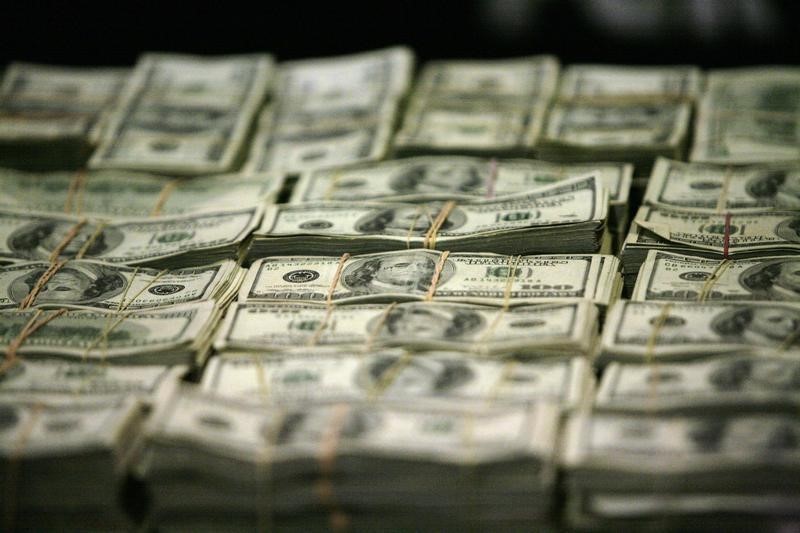Investing.com - The dollar turned lower against other major currencies on Wednesday, but losses were expected to remain limited as political uncertainty in Europe continued to weigh on market sentiment.
EUR/USD added 0.10% to 1.0689, off a one-and-a-half week low of 1.0641 hit overnight.
The euro came under pressure amid concerns over the possibility of a Brexit or Trump-style shock result in France’s upcoming presidential election.
Worries over elections in the Netherlands, Germany and possibly Italy, as well as the ongoing row over Greece's bailout added to concerns over political risk in the euro area.
Dovish remarks by European Central Bank President Mario Draghi, who on Monday downplayed calls for the bank to scale back its stimulus program, also weighed.
Meanwhile, sentiment on the greenback remained supported after Minneapolis Federal Reserve Bank President Neel Kashkari said on Tuesday that the U.S. central bank should keep monetary policy moderately accommodative.
The comments came a day after Philly Fed President Patrick Harker said he would support hiking rates in March.
Elsewhere, GBP/USD was steady at 1.2513.
Earlier Wednesday, British Prime Minister Theresa May said that an independent Scotland would not be part of the European Union. The comments came a day after Scotland's parliament rejected May's Brexit plans in a symbolic, non-binding vote.
USD/JPY declined 0.38% to 111.93, close to the previous session’s more than two-month lows of 111.57, while USD/CHF slid 0.28% to 0.9948.
The Australian and New Zealand dollars pushed higher, with AUD/USD up 0.25% at 0.7646 and with NZD/USD gaining 0.25% to 0.7317.
Meanwhile, USD/CAD edged down 0.21% to trade at 1.3158, off Tuesday’s two-week high of 1.3215.
The U.S. dollar index, which measures the greenback’s strength against a trade-weighted basket of six major currencies, was down 0.19% at 100.20, off session highs of 100.63.
